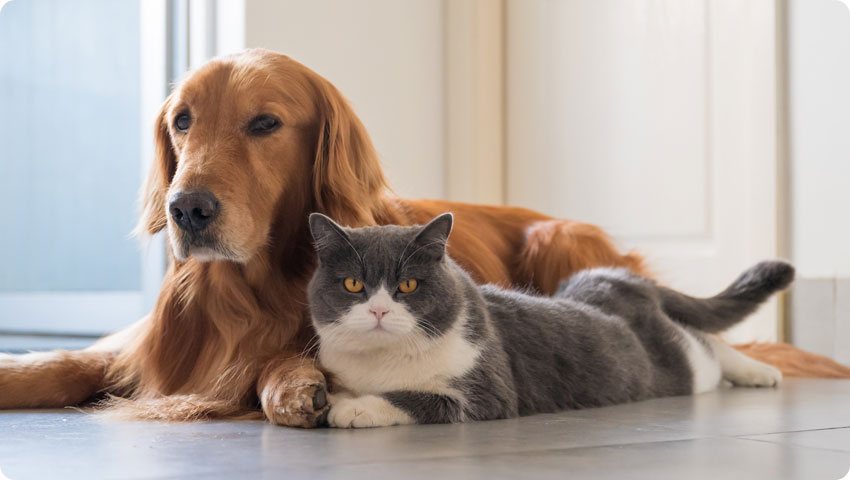Senior Years


Senior Years (8yr+ depending on the breed)
By this stage of life your pet may already have one or more medical concerns that require ongoing treatments, routine blood tests or other investigations. It is vital that we maintain general health and keep vaccinations and routine parasite control up to date.
Diet is also a major consideration at this age. There are many amazing prescription diets available which can in many cases minimise the need for more potent daily medications. Some examples of common diets we use at this stage of life for dogs include:
- Hills j/d or Royal Canin Mobility C2P+ – ideal to assist in providing underlying support for arthritis.
- Hills k/d or Hills y/d – to help manage kidney or thyroid issues commonly seen in cats often eliminating the need for oral medications.
- Hills t/d – helps manage dental health for both dogs and cats.
Prevention and proactive screening are the key to a long and healthy life. Your pet should have had baseline bloods done in earlier years which allow us to track more accurately any changes as problems arise in senior years. Depending on previous blood results we may recommend more frequent reviews if specific parameters require more accurate monitoring.
At this stage of life there are many factors to consider when monitoring for medical issues. The earlier we can identify medical conditions or disease the greater chance we have to effectively manage or cure. If you notice any of the following changes we would recommend a review with one of our vets to ensure there is no underlying concerns.
- Excessive drinking;
- Loss of appetite or changes in dietary habits;
- Unexpected weight gain;
- Unexpected weight loss;
- Changes in coat – for example thinning of hair or hair loss;
- Excessive grooming;
- Changes in exercise tolerance e.g., distance a dog may be comfortable walking or how high a cat is prepared to jump;
- Limping – especially if worsening over an extended period of time;
- Changes in vocalisation;
- Restlessness at night; or
- Changes in behaviour – e.g., dogs no longer responding to previous commands or cats urinating inappropriately.
Some changes may occur suddenly, but others may occur over several months or even years, so it is important to step back and assess objectively on a regular basis. Some clients choose to diarise their reviews to allow for more accurate and objective assessments which can then be reported back at each check-up.
This is just a short list of common signs and changes to watch for. The more aware you are of your pet’s daily routine the more likely you are to notice changes. As is often quoted 1 year in a dog or cat is equivalent to many more human years and this is never more relevant in their senior years. Dental disease can progress and become irreversible within 6 months, abdominal tumours can develop in 3 months, endocrine conditions can occur without many owners even realising as the signs can be very subtle.
Daily routines should be reviewed regularly at this age to ensure your pet is coping in their environment and adjustments made as needed. This may include length of walks, bedding, stairs, jumping in and out of cars, interacting with other dogs and reviewing dietary requirements.
Cats are often harder to assess, and their environment should be carefully reviewed and considered regarding location of feeding, comfortable bedding, opportunity to have a resting place up high (without having to jump if this is becoming more of a challenge). Our qualified team are here to help you manage your cat’s wellbeing in their later years.
The senior years of your pet’s life are often the most memorable for many reasons, but mostly because the bond you have with your pet at this stage is so strong. You will be communicating with them without even realising and them to you. You can recognise the smallest changes in their behaviour just as they will know when you are having a bad day before any human. We are here to help guide you both through this time and make it as good as it can be for your pet. There are numerous treatment options and medications available and research into domestic animals and their health is ever expanding. We, as your vets and your pet’s best advocate, are continually educating ourselves to provide you with the very best care options. Your job as a pet parent is to enjoy these years and let us help you to look after your pet’s health in the best way possible.
